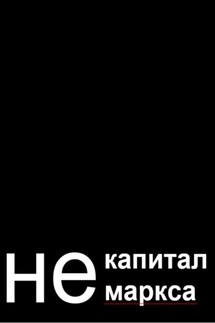The General Theory of Capital: Self-Reproduction of Humans Through Increasing Meanings - страница 5
Ivan Pavlov called sensations, perceptions and mental representations of the environment the first signaling system that humans have in common with animals, and the word the second system that distinguishes humans. “But words have built up a second system of signaling reality, which is only peculiar to us, being a signal of the primary signals. The numerous stimulations by word have, on the one hand, removed us from reality, a fact we should constantly remember so as not to misinterpret our attitude towards reality. On the other hand, it was nothing other than words which has made us human” (Pavlov 1941, vol. 2, p. 179). Nevertheless, not only a word is a signal of primary signals, but every abstract, symbolic action. Both a word and, for example, a human gesture or instrumental action are types of abstract social action.
(3) The evolution of the material side of activity enlarges the niche that man occupies. From generation to generation, humans expand their domus, the part of the environment they use as a means of activity, thus extending the boundaries of their home. Meaning is a material abstraction, because meaning is both a process of interaction with things (making) and at the same time the material precondition and result of human self-reproduction.
Meaning made apes human. The coevolution of proto-humans and meanings gave rise to Homo sapiens. When we look at the universe of humans and meanings from the perspective of humans, we see society, and when we look at it from the perspective of meanings, we see culture. We call this universe culture-society.
Needs, motives and emotions
Self-reproduction of man as a living being presupposes the satisfaction of his needs. “The presence of needs in a subject is as a fundamental condition of his existence as metabolism [and signal exchange—A.K.]. In fact, these are different expressions of the same thing” (Leontiev 1971). Consumption, or the satisfaction of needs, is the beginning and end of self-reproduction. Essentially, consumption is the production of humans, since the product of consumption is man himself. In its origin, consumption was based on the search for food (foraging), appropriation of the material of nature and its minimal elaboration (mediation).
Meaning is a means that has evolved into an end. Ends and goals are the results of possible actions that subjects imagine. The ability to set goals, that is, to imagine means and to choose between them, distinguishes humans from animals, which also use the environment as a means.
“A spider conducts operations that resemble those of a weaver, and a bee puts to shame many an architect in the construction of her cells. But what distinguishes the worst architect from the best of bees is this, that the architect raises his structure in imagination before he erects it in reality. At the end of every labor process, we get a result that already existed in the imagination of the laborer at its commencement” (Marx and Engels 1975-2004, vol. 35, p. 188).
The evolution of meanings began with the simplest actions and their results, such as the making of a chopper. The simplest chopper—a stone whose edge has been sharpened by chipping off fragments with another stone—is the result of the motions of a hominid. The sum of the motions forms a holistic action, the result of which is the chopper. A hominid, his instrumental action, and chopper itself are necessary for meaning to emerge. The moment when hominids began deliberately making choppers was also the moment when nature became their means and culture emerged. It is obvious that this “moment” is actually a bridge across time, and the spans of this bridge require further exploration.







